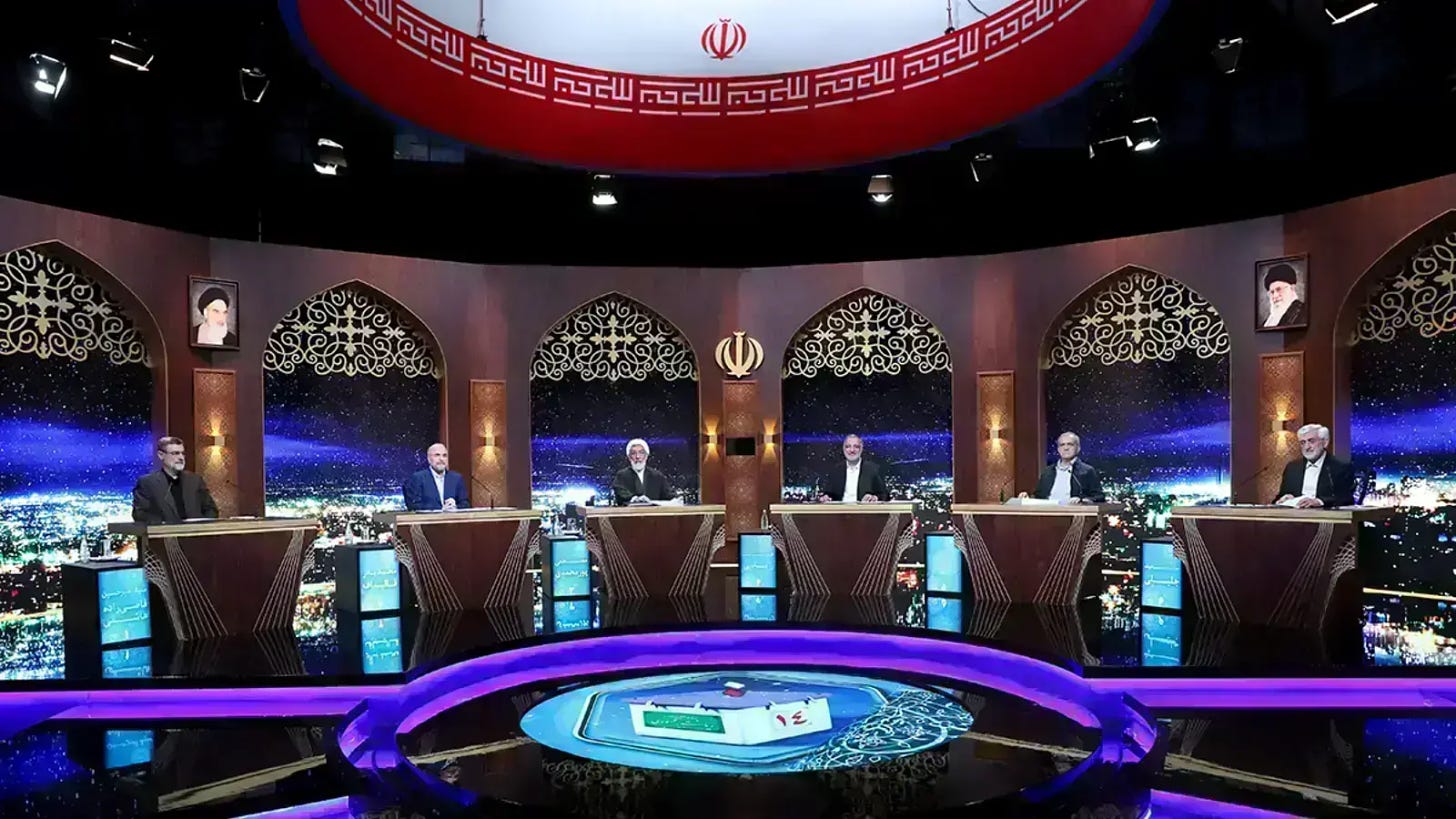Iran Heads to Presidential Elections
Debates Address Adverse Economic Impacts of Unilateral Sanctions Imposed by US

The campaign for Iran’s presidential elections ended on Wednesday 26 June with pre-poll surveys indicating a surprise marginal lead for the sole reformist candidate Masoud Pezeshkian. Debates indicating the adverse impact of US sanctions on the country’s economy have emerged as the most significant issue.
In a pre-poll survey conducted by government agencies a week prior to the vote on 28 June, conservative Saeed Jalili was leading with over three percent of the vote from his nearest rival, and another conservative candidate Mohammad Baqer Qalibaf. However, among the respondents who said they will definitely come out and vote on 28 June, Pezeshkian was the clear leader, with over 22.5% voters in his favor followed by Jalili with 19.2%.
Jalili, Iran’s former chief nuclear negotiator, was supported by 22.5% of the general respondents, whereas Qalibaf, the current speaker of the Iranian parliament, was supported by 19.5% of respondents. Pezeshkian had the support of 19.4% of voters among general respondents.
Qalibaf was pitched as the favorite of conservative sections in the country earlier, and he was leading the polls in the beginning of the poll process.
Other three candidates Amir-Hossein Ghazizadeh Hashemi, Alireza Zakani, and Mostafa Pourmohammadi received insignificant voter support in the polls, which indicated that over 28% of all respondents had not yet made up their mind on whom to vote for on 28 June.
Other polls suggest that Pezeshkian is leading, with over 24% voters in his favor, with Jalili and Qalibaf closely contesting for the second position. If there is no clear winner on Friday, there will be a runoff in the first week of July.
The polls suggest increased voter participation, with over 51% of respondents saying they will vote.
Gradually decreasing voter participation is one of the main worries in Iran. During the last presidential elections in 2021 the voter turnout was 48%. It went down further to around 40% in the country’s parliamentary elections earlier this year. Iran’s supreme leader Ayatollah Ali Khamenei urged people to come and vote in larger numbers. Greater voter participation strengthens the legitimacy of the Iranian system, Khamenei said.
Condition of economy dominates in presidential debates
Five televised debates were conducted among all presidential hopefuls during the campaign. The debates primarily focused on the country’s economic condition, cultural revival, direction of its foreign policy and efficient government functioning.
The impact of unilateral American sanctions on the country’s economy, alleged corruption, and empowerment of the rural economy and the condition of women emerged as major issues in the debates. Most of the candidates during the debate have tried to emphasize that they will prioritize the revival of the rural economy and petroleum exports as ways to deal with the economic problems in the country.
Some candidates underlined the need to strengthen the welfare policies of the Iranian state to stave off the adverse impact of economic crises such as unemployment and inflation.
Despite having one of the largest oil and gas reserves in the world, the Iranian economy has suffered in the last few years due to numerous unilateral sanctions imposed by the US following its unilateral withdrawal from the Joint Comprehensive Plan of Action (JCPOA) or Iran nuclear deal in 2018.
President Ebrahim Raisi, who died last month in a helicopter crash, had tried to strengthen relations with China, Russia and Third World countries. One of the major objectives behind this policy was to undermine the impact of those unilateral sanctions. It led to an increase in the exports of oil from Iran after a gap of many years, with the country also joining several global organizations and reviving relations with the neighbors.
During the debates, most of the candidates declared they will continue to implement Raisi’s policies and find ways to increase partners to undermine the illegal sanctions.
Iran has been demanding the restoration of the JCPOA. It reiterated its demands in the recently concluded meeting of the UN Security Council, which reviewed the implementation of its 2015 resolution 2231, which had lifted all international sanctions against Iran after the signing of the multiparty JCPOA.
Despite several rounds of dialogue to revive the deal, the US has refused to lift sanctions. Earlier this week, the US Treasury Department imposed a fresh round of sanctions against 50 Iranian entities, apparently for involvement in international financial activities.



